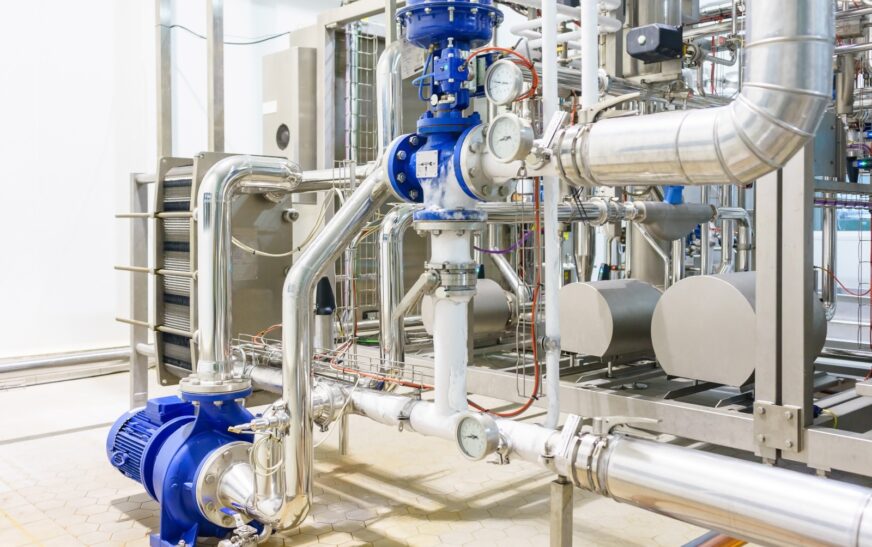In today’s world, the demand for energy efficiency and sustainable operations in commercial and residential buildings has reached new heights. Heating, Ventilation, and Air Conditioning (HVAC) systems are at the core of ensuring comfortable indoor environments, and building automation systems (BAS) enhance their performance through intelligent controls. Valves play a critical role in this synergy, enabling precise flow control of water, steam, air, and refrigerants, which are the lifeblood of HVAC systems.
This comprehensive guide delves into the importance of efficient valves, their types, and how they contribute to optimized HVAC and building automation systems.
The Role of Valves in HVAC Systems
Valves are mechanical devices that regulate the flow of fluids and gases within HVAC systems. They ensure the right amount of heating, cooling, and ventilation reaches different zones within a building. An efficient valve can significantly reduce energy consumption, extend equipment life, and ensure consistent comfort levels.
Key Functions of Valves in HVAC:
- Flow Regulation: Controlling the flow of water or air to maintain desired temperatures.
- Pressure Control: Managing system pressures to protect equipment from damage.
- Isolation: Allowing sections of the system to be shut off for maintenance or emergencies.
- Mixing and Diverting: Combining or separating fluid streams to meet specific system needs.
Types of Valves for HVAC Systems
Different types of valves are used in HVAC systems, each tailored to a specific function.
1. Ball Valves
- Function: On/off control and throttling.
- Advantages: Compact, durable, and provides tight shutoff.
- Applications: Ideal for chilled water systems and hot water circuits.
2. Butterfly Valves
- Function: Flow isolation and modulation.
- Advantages: Lightweight, cost-effective, and suitable for large-diameter pipes.
- Applications: Frequently used in cooling towers and HVAC piping systems.
3. Globe Valves
- Function: Precise flow control.
- Advantages: Excellent throttling capabilities and reliable in high-pressure settings.
- Applications: Used in steam systems and temperature regulation.
4. Zone Valves
- Function: Control flow to specific zones within a building.
- Advantages: Enhances energy efficiency by isolating inactive zones.
- Applications: Common in radiant heating and air handling units.
5. Pressure-Independent Control Valves (PICVs)
- Function: Automatically maintain desired flow rates regardless of pressure changes.
- Advantages: Improves energy efficiency and simplifies system balancing.
- Applications: Widely used in modern building automation systems.
6. Thermostatic Valves
- Function: Self-regulating valves that maintain pre-set temperatures.
- Advantages: Simplifies temperature control without external power.
- Applications: Popular in radiator heating systems.
Valves in Building Automation Systems
Building automation systems integrate advanced technologies to optimize HVAC performance, lighting, and energy consumption. Valves in BAS are often equipped with actuators and sensors to enable remote control and monitoring, enhancing the efficiency and reliability of HVAC systems.
Benefits of Automation in Valve Control:
- Precision: Automated valves provide accurate flow and temperature regulation.
- Energy Savings: Minimizes energy waste by optimizing system performance.
- Real-Time Monitoring: Sensors allow for continuous feedback on system performance.
- Ease of Maintenance: Faults are detected early, reducing downtime and repair costs.
Smart Valve Technologies:
- IoT-Enabled Valves: Allow seamless integration with BAS for data-driven decision-making.
- Electromagnetic Valves: Offer quick response times and precise control.
- Self-Learning Valves: Adapt to changing building demands to maximize efficiency.
Factors to Consider When Choosing HVAC Valves
Selecting the right valve is critical to achieving optimal performance in HVAC and building automation systems. Key factors to evaluate include:
- System Requirements: Match the valve’s flow and pressure ratings to the system.
- Material Compatibility: Ensure the valve material is resistant to the working fluids.
- Control Precision: Choose valves that offer the level of control your system demands.
- Durability and Maintenance: Opt for robust valves that minimize maintenance downtime.
- Automation Compatibility: Ensure valves can integrate with your building automation system.
Energy Efficiency and Sustainability
The global push for sustainable practices has highlighted the need for energy-efficient HVAC systems. Efficient valves reduce energy losses and enhance the overall system’s coefficient of performance (COP).
Energy-Saving Tips with Valves:
- Regular Maintenance: Prevent leaks and ensure smooth valve operation.
- System Balancing: Use PICVs to maintain optimal flow rates.
- Upgrade to Smart Valves: Retrofit existing systems with automated or IoT-enabled valves.
- Insulate Valves: Reduce thermal losses in hot water systems.
Common Challenges and Solutions
1. Improper Sizing
- Problem: Oversized or undersized valves lead to inefficiency and wear.
- Solution: Conduct detailed load calculations and use appropriate sizing tools.
2. Actuator Failures
- Problem: Faulty actuators disrupt valve performance.
- Solution: Use high-quality actuators and schedule regular inspections.
3. Corrosion
- Problem: Corrosion degrades valve materials in harsh environments.
- Solution: Choose corrosion-resistant materials like stainless steel or bronze.
4. Pressure Fluctuations
- Problem: Variations in pressure affect flow stability.
- Solution: Install PICVs to mitigate pressure-induced issues.
Future Trends in HVAC Valve Technology
The future of HVAC valves lies in smart, sustainable technologies that enhance performance while reducing environmental impact.
- Artificial Intelligence: Predictive maintenance and adaptive flow control through AI integration.
- Green Materials: Use of eco-friendly materials to minimize environmental footprints.
- Decentralized Systems: Modular valve systems for flexible building configurations.
Conclusion
Efficient valves are indispensable for modern HVAC and building automation systems. They ensure optimal flow control, enhance energy efficiency, and contribute to sustainable building operations. By investing in high-quality, automation-compatible valves and implementing best practices, businesses and homeowners can achieve significant cost savings and environmental benefits.









